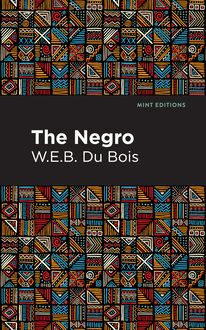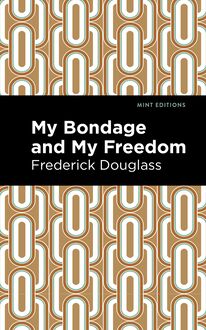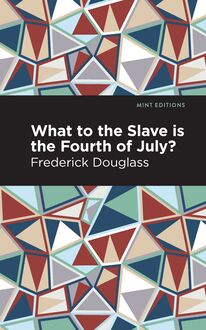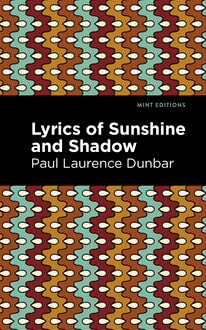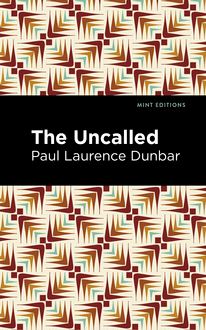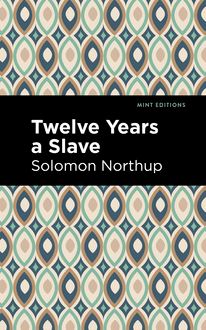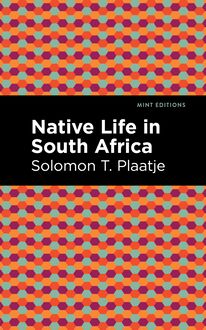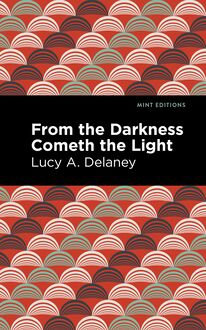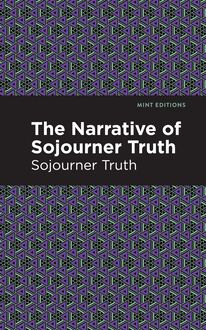-
 Univers
Univers
-
 Ebooks
Ebooks
-
 Livres audio
Livres audio
-
 Presse
Presse
-
 Podcasts
Podcasts
-
 BD
BD
-
 Documents
Documents
-
- Cours
- Révisions
- Ressources pédagogiques
- Sciences de l’éducation
- Manuels scolaires
- Langues
- Travaux de classe
- Annales de BEP
- Etudes supérieures
- Maternelle et primaire
- Fiches de lecture
- Orientation scolaire
- Méthodologie
- Corrigés de devoir
- Annales d’examens et concours
- Annales du bac
- Annales du brevet
- Rapports de stage
La lecture à portée de main
Vous pourrez modifier la taille du texte de cet ouvrage
Découvre YouScribe en t'inscrivant gratuitement
Je m'inscrisDécouvre YouScribe en t'inscrivant gratuitement
Je m'inscrisEn savoir plus
Vous pourrez modifier la taille du texte de cet ouvrage
En savoir plus

Description
Frances Harper: Poems, Prose, and Sketches (2021) is a collection of writing by Frances Harper. Harper, the first African American woman to publish a novel, gained a reputation as a popular poet and impassioned abolitionist in the decades leading up to the American Civil War. Much of her work was rediscovered in the twentieth century and preserved for its significance to some of the leading social movements of the nineteenth century, including temperance, abolition, and women’s suffrage. As an artist for whom the personal was always political, Frances Harper served in a leadership role at the Women’s Christian Temperance Union and worked to establish the National Association of Colored Women, serving for a time as vice president of the organization. Included in this volume are extracts of her early poetry volumes, including Forest Leaves (1845) and Poems on Miscellaneous Subjects (1854). In “Bury Me in Free Land,” an influential poem published in an 1858 edition of abolitionist newspaper The Anti-Slavery Bugle, Harper expresses her commitment to the cause of freedom in life or death terms: “I ask no monument, proud and high, / To arrest the gaze of the passers-by; / All that my yearning spirit craves, / Is bury me not in a land of slaves.” She reflects on the theme of freedom throughout her body of work, often examining her own identity or experiences as a free Black woman alongside the lives of her enslaved countrymen. In “Free Work,” she looks to something as simple as her own clothing and examines its connection—or lack thereof—to the institution of slavery: “I wear an easy garment, / O’er it no toiling slave / Wept tears of hopeless anguish, / In his passage to the grave.” Reflecting on the horrors of slavery through the lens of the everyday, Harper refuses to take for granted the significance of freedom in all of its manifestations, a reality which is sometimes as simple as the clothes on her back. In these poems and speeches from across her lengthy career as an artist and activist, Harper not only dedicates herself to her suffering people, but imagines a time “When men of diverse sects and creeds / Are clasping hand in hand.” With a beautifully designed cover and professionally typeset manuscript, this edition of Frances Harper’s Frances Harper: Poems, Prose, and Sketches is a classic of African American literature reimagined for modern readers.
Sujets
Informations
| Publié par | Mint Editions |
| Date de parution | 28 mai 2021 |
| Nombre de lectures | 0 |
| EAN13 | 9781513293325 |
| Langue | English |
| Poids de l'ouvrage | 2 Mo |
Informations légales : prix de location à la page 0,0500€. Cette information est donnée uniquement à titre indicatif conformément à la législation en vigueur.
Extrait
Frances Harper
Poems, Prose and Sketches
Frances Ellen Watkins Harper
Frances Harper: Poems, Prose and Sketches includes poems and prose first published between 1845 and 1894.
This edition published by Mint Editions 2021.
ISBN 9781513290478 | E-ISBN 9781513293325
Published by Mint Editions®
minteditionbooks.com
Publishing Director: Jennifer Newens
Design & Production: Rachel Lopez Metzger
Project Manager: Micaela Clark
Typesetting: Westchester Publishing Services
C ONTENTS A N OTE FROM THE P UBLISHER P REFACE F OREST L EAVES E THIOPIA T HE S OUL “H E K NOWETH N OT T HAT THE D EAD A RE T HERE ” T HAT B LESSED H OPE Y EARNINGS F OR H OME F AREWELL , M Y H EART IS B EATING H AMAN AND M ORDECAI L ET M E L OVE T HEE R UTH AND N AOMI “B IBLE D EFENCE OF S LAVERY ” T O A M ISSIONARY “I T HIRST ” T HE D YING C HRISTIAN A D REAM T HE F ELON ’ S D REAM A D IALOGUE C RUCIFIXION A N A CROSTIC F OR S HE S AID I F I M AY B UT T OUCH OF H IS C LOTHES I S HALL B E W HOLE T HE P RESENTIMENT P OEMS ON M ISCELLANEOUS S UBJECTS T HE S YROPHENICIAN W OMAN T HE S LAVE M OTHER B IBLE D EFENCE OF SLAVERY E LIZA H ARRIS E THIOPIA T HE D RUNKARD ’ S C HILD T HE S LAVE A UCTION T HE R EVEL T HAT B LESSED H OPE T HE D YING C HRISTIAN R EPORT A DVICE TO THE G IRLS S AVED B Y F AITH D IED OF S TARVATION A M OTHER ’ S H EROISM T HE F UGITIVE ’ S W IFE T HE C ONTRAST T HE P RODIGAL ’ S R ETURN E VA ’ S F AREWELL M ISCELLANEOUS W RITINGS C HRISTIANITY T HE B IBLE T HE C OLORED P EOPLE IN A MERICA F REE L ABOR B URY M E IN A F REE L AND T WO O FFERS S KETCHES OF S OUTHERN L IFE A UNT C HLOE T HE D ELIVERANCE A UNT C HLOE ’ S P OLITICS L EARNING TO R EAD C HURCH B UILDING T HE R EUNION “I T HIRST ” T HE D YING Q UEEN T HE J EWISH G RANDFATHER ’ S S TORY S HALMANEZER , P RINCE OF C OSMAN O UT IN THE C OLD S AVE THE B OYS N OTHING AND S OMETHING W ANDERER ’ S R ETURN “F ISHERS OF M EN ” S IGNING THE P LEDGE L IGHT B EYOND THE D ARKNESS A F AIRER H OPE , A B RIGHTER M ORN O UR H ERO E NLIGHTENED M OTHERHOOD : A N A DDRESS A TLANTA O FFERING M Y M OTHER ’ S K ISSES A G RAIN OF S AND T HE C ROCUSES T HE P RESENT A GE D EDICATION P OEM A D OUBLE S TANDARD T HE D YING B ONDMAN “A L ITTLE C HILD S HALL L EAD T HEM ” T HE S PARROW ’ S F ALL G OD B LESS O UR N ATIVE L AND D ANDELIONS T HE B UILDING H OME , S WEET H OME T HE P URE IN H EART S HALL S EE G OD H E “H AD N OT W HERE TO L AY H IS H EAD ” G O W ORK IN M Y V INEYARD R ENEWAL OF S TRENGTH J AMIE ’ S P UZZLE T RUTH D EATH OF THE O LD S EA K ING S AVE THE B OYS N OTHING AND S OMETHING V ASHTI T HANK G OD FOR L ITTLE C HILDREN T HE M ARTYR OF A LABAMA T HE N IGHT OF D EATH M OTHER ’ S T REASURES T HE R EFINER ’ S G OLD A S TORY OF R EBELLION B URIAL OF S ARAH G OING F AST T HE H ERMIT ’ S S ACRIFICE S ONGS FOR THE P EOPLE
A N OTE FROM THE P UBLISHER
T his collection of work follows Miss Frances Harper from her first known publication, Forest Leaves , to her last, The Martyr of Alabama and Other Poems .
You may find that some poems occur more than once in this book with slight differences, and these have been left unedited so that the reader may see the progression of the poet through time.
M.Clark
Berkeley, CA
2021
P REFACE
O f the colored population of the United States, three millions are doomed to the horrible condition of chattel slavery. That condition is the annihilation of manhood, the extinction of genius, the burial of mind. In it, therefore, there can be no progress on the part of its victims; what they are capable of being and doing can only be a matter of supposition. It is unlawful to teach them the alphabet; they not only have no literature, but they know not the meaning of the word; for them there is no hope, and therefore no incentive to a higher development; in one word, they are property to be owned, not persons to be protected.
There are half a million free colored persons in our country. These are not admitted to equal rights and privileges with the whites. As a body, their means of education are extremely limited; they are opposed on every hand; they are confined to the performance of the most menial acts; consequently, it is not surprising that their intellectual, moral and social advancement is not more rapid. Nay, is it surprising, in view of the injustice meted out to them, that they have done so well. Many bright examples of intelligence, talent, genius and piety might be cited among their ranks, and these are constantly multiplying.
Every indication of ability, on the part of any of their number, is deserving of special encouragement. Whatever is attempted, in poetry or prose, in art or science, in professional or mechanical life, should be viewed with a friendly eye, and criticized in a lenient spirit. To measure them by the same standard as we measure the productions of the favored white inhabitants of the land would be manifestly unjust. The varying circumstances and conditions of life are to be taken strictly into account.
Hence, in reviewing the following Poems, the critic will remember that they are written by one young in years, and identified in complexion and destiny with a depressed and outcast race, and who had to contend with a thousand disadvantages from earliest life. They certainly are very creditable to her, both in a literary and moral point of view, and indicate the possession of a talent, which, if carefully cultivated and properly encouraged, cannot fail to secure herself a poetic reputation, and to deepen the interest already so extensively felt in the liberation and enfranchisement of the entire colored race Though Miss Watkins has never been a slave, she has always resided in a slave State—Baltimore being her native city. A specimen of her prose writings in also appended. A few slight alterations excepted, the work is entirely her own.
W. L. G.
Boston,
August 15, 1854
FOREST LEAVES
E THIOPIA
Yes, Ethiopia, yet shall stretch
Her bleeding hands abroad,
Her cry of agony shall reach
The burning throne of God.
The tyrant’s yoke from off her neck,
His fetters from her soul,
The mighty hand of God shall break,
And spurn their vile control.
Redeem’d from dust and freed from chains
Her sons shall lift their eyes,
From cloud capt hills and verdant plains
Shall shouts of triumph rise.
Upon her dark despairing brow
Shall play a smile of peace,
For God hath bent unto her woe
And bade her sorrows cease.
’Neath sheltering vines and stately palms,
Shall laughing children play,
And aged sires with joyous psalms,
Shall gladden every day.
Secure by night, and blest by day
Shall pass her happy hours,
Nor human tigers hunt for prey
Within her peaceful bowers.
Then Ethiopia, stretch, Oh stretch
Thy bleeding hands abroad,
Thy cry of agony shall reach
And find redress from God.
T HE S OUL
Bring forth the balance, let the weights be gold,
We’d know the worth of a deathless soul;
Bring rubies and jems from every mine,
With the wealth of ocean, land and clime.
Bring the joys of the glad green earth,
Its playful smiles and careless mirth;
The dews of youth, and flushes of health,
Bring! Oh bring! the wide world’s wealth.
Bring the rich radiant gems of thought
From the mines and deeps of knowledge brought;
Bring glowing words and ponderous lore,
Search heaven and earth’s arcana o’er.
Bring the fairest, brightest rolls of fame,
Unwritten with a deed of guilt or shame;
Bring honor’s guerdon, and victory’s crown,
Robes of pride, and laurels of renown.
We’ve brought the wealth of every mine,
We’ve ransack’d ocean, land clime,
And caught the joyous smiles away
From the prattling babe to the sire grey.
We’ve brought the names of the noble dead
With those who in their footsteps tread;
Here are wreaths of pride and gems of thought
From the battle field and study brought.
Heap high the gems, pile up the gold,
Heavy’s the weight of a deathless soul;
Make room for all the wealth of earth,
Its honors, joys, and careless mirth.
Leave me a niche for the rolls of fame
For precious indeed is a spotless name,
For the wreaths, the robes and gems of thought,
Let an empty place in the scale be sought.
With care we’ve adjusted balance and scale,
Futile our efforts we’ve seen them fail;
Lighter than dust is the wealth of earth
Weigh’d in the scales with immortal worth.
Could we drag the sun from its golden car
To lay in this balance with ev’ry star,
T’would darken the day and obscure the night,
But the weight of the balance would still be light.
“H E K NOWETH N OT T HAT THE D EAD A RE T HERE ”
In yonder halls reclining
Are forms surpassing fair,
And brilliant lights are shining,
But, Oh! the dead are there.
There’s music, song and dance,
There is banishment of care,
And mirth in every glance,
But still the dead are there.
Like the asp’s seductive venom
Hid ’neath flowerets fair,
This charnal house concealeth
The dead that slumber there.
’Neath that flow of song and laughter
Runs the current of despair,
But the simple sons of pleasure
Know not the dead are there.
They’ll shudder, start and tremble,
They’ll weep in wild despair,
When the solemn truth breaks on them
That the dead, the dead are there.
They who’ve scoff’d at ev’ry warning,
Who’ve turn’d from ev’ry prayer,
Shall learn in bitter anguish
That the dead, the dead are there.
T HAT B LESSED H OPE
Oh touch it not that hope so blest
Which cheers the fainting heart,
And points it to the coming rest
Where sorrow has no part.
Tear from heart each worldly prop,
Unbind each earthly string;
But to this blest and glorious hope,
Oh let my spirit cling.
It cheer’d amid the days of old
Each holy patriarch’s breast,
It was an anchor to their souls,
Upon it let me rest.
When wand’ring in the dens and caves,
In goat and sheep skins drest,
Apeel’d and scatter’d people learn’d
To know this hope was blest.
Help me to love this blessed hope;
My heart’s a fragile thing;
Will you not nerve and bear it up
-
 Univers
Univers
-
 Ebooks
Ebooks
-
 Livres audio
Livres audio
-
 Presse
Presse
-
 Podcasts
Podcasts
-
 BD
BD
-
 Documents
Documents
-
Jeunesse
-
Littérature
-
Ressources professionnelles
-
Santé et bien-être
-
Savoirs
-
Education
-
Loisirs et hobbies
-
Art, musique et cinéma
-
Actualité et débat de société
-
Jeunesse
-
Littérature
-
Ressources professionnelles
-
Santé et bien-être
-
Savoirs
-
Education
-
Loisirs et hobbies
-
Art, musique et cinéma
-
Actualité et débat de société
-
Actualités
-
Lifestyle
-
Presse jeunesse
-
Presse professionnelle
-
Pratique
-
Presse sportive
-
Presse internationale
-
Culture & Médias
-
Action et Aventures
-
Science-fiction et Fantasy
-
Société
-
Jeunesse
-
Littérature
-
Ressources professionnelles
-
Santé et bien-être
-
Savoirs
-
Education
-
Loisirs et hobbies
-
Art, musique et cinéma
-
Actualité et débat de société
- Cours
- Révisions
- Ressources pédagogiques
- Sciences de l’éducation
- Manuels scolaires
- Langues
- Travaux de classe
- Annales de BEP
- Etudes supérieures
- Maternelle et primaire
- Fiches de lecture
- Orientation scolaire
- Méthodologie
- Corrigés de devoir
- Annales d’examens et concours
- Annales du bac
- Annales du brevet
- Rapports de stage
